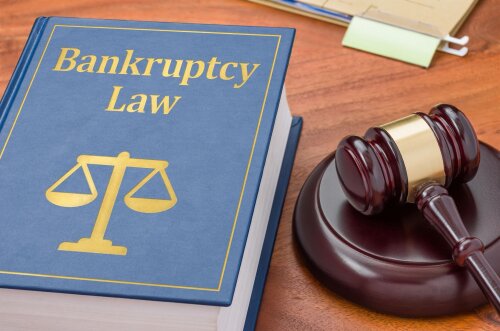Best Debt & Collection Lawyers in Alabama
Share your needs with us, get contacted by law firms.
Free. Takes 2 min.
Or refine your search by selecting a city:
List of the best lawyers in Alabama, United States
About Debt & Collection Law in Alabama, United States
Debt and collection law in Alabama governs the process by which creditors seek to collect debts owed by individuals or businesses. This field of law sets limits on how debts must be handled, outlines the rights of both debtors and creditors, and enforces fair collection practices. Alabama's debt collection laws operate alongside federal protections, such as the Fair Debt Collection Practices Act (FDCPA), to protect consumers from harassment or unfair tactics while still allowing creditors to recover legitimate debts. Whether you are facing aggressive collections or needing to collect an unpaid obligation, understanding Alabama's debt and collection laws is crucial for protecting your rights and navigating the process effectively.
Why You May Need a Lawyer
There are many situations where legal assistance is vital in debt and collection matters. If you are being pursued by a debt collector, a lawyer can ensure your rights are not being violated and help you respond appropriately. Legal guidance is also valuable if you are facing a lawsuit or wage garnishment for an unpaid debt. On the other hand, if you are a business or individual trying to recover a debt, a lawyer can help you pursue collection in compliance with Alabama law, including filing lawsuits or obtaining judgments. Additionally, if you believe you are a victim of mistaken identity, debt collection errors, or harassment, legal advocacy can be essential to resolve your issue efficiently and protect your interests.
Local Laws Overview
The state of Alabama follows several specific statutes and court procedures governing debt and collection:
- Alabama law incorporates the federal Fair Debt Collection Practices Act (FDCPA), which prohibits abusive practices by debt collectors and requires they provide certain disclosures.
- The statute of limitations for most consumer debts in Alabama, such as credit cards or written contracts, is six years. After this period passes, a creditor cannot successfully sue to collect the debt, although attempts to collect without a lawsuit may continue.
- Debt collectors in Alabama are restricted in their communications - for example, they may not call at unusual hours or use threats, misrepresentation, or harassing behavior.
- Alabama law permits wage garnishment as a method of collecting court-ordered judgments. However, only a portion of income may be garnished, and the debtor must be notified before garnishment begins.
- If a creditor obtains a court judgment, property liens are another possible collection tool, though exemptions exist for homesteads and certain personal property.
- Alabama does not require debt collectors to be licensed within the state, but they must still follow all federal and state regulations.
Understanding these laws can help both consumers and collectors avoid costly legal mistakes and assert their legal rights when dealing with debts.
Frequently Asked Questions
What is the statute of limitations for collecting a debt in Alabama?
For most consumer debts, such as credit cards and written contracts, the statute of limitations in Alabama is six years from the date of the last payment or acknowledgment of the debt. For open accounts, this period may differ depending on the specific agreement.
Can a debt collector garnish my wages in Alabama?
Yes, wage garnishment is permitted in Alabama once a creditor obtains a court judgment. However, there are limits on how much of your disposable earnings can be garnished each pay period, typically up to 25 percent.
What actions are debt collectors prohibited from taking in Alabama?
Debt collectors may not use threats, false statements, or harassing tactics. They cannot call at unreasonable hours or contact you at work if you have asked them not to do so. These actions violate both state law and the federal FDCPA.
How can I stop debt collectors from contacting me?
You may request in writing that a debt collector stop contacting you. Once they receive your request, they must cease most direct communications except to notify you of specific actions, such as filing a lawsuit.
Do I have to go to court if I am sued for a debt?
If you are served with a court summons for a debt, you should respond or appear in court as instructed. Failing to do so can result in a default judgment against you, allowing further collection actions like wage garnishment.
Will paying an old debt restart the statute of limitations?
Yes, making a payment or acknowledging the debt in writing can restart the six-year statute of limitations in Alabama, even if the debt was previously time-barred.
Is bankruptcy an option for dealing with overwhelming debt?
Bankruptcy may discharge certain debts or help restructure payments, but it is a significant legal decision with lasting financial impact. It is advisable to consult with an attorney before filing.
Are there exemptions that protect my property from creditors?
Yes, Alabama law provides exemptions that may protect certain personal property and a portion of the value of your homestead from being seized by creditors with a judgment.
What should I do if I am being harassed by a debt collector?
Document all communications and consider contacting an attorney. You also have the right to report the debt collector to the Consumer Financial Protection Bureau or the Alabama Attorney General.
Can I negotiate with creditors or collectors to settle my debt?
Yes, negotiating a payment plan or settlement is common. It is helpful to get any agreement in writing. An attorney can assist with negotiations and help protect your interests.
Additional Resources
If you need guidance or support with debt and collection matters in Alabama, consider these helpful resources:
- Alabama Legal Help - Offers information and referrals for low-income individuals dealing with debt collection issues.
- Consumer Financial Protection Bureau (CFPB) - Provides federal resources for consumer complaints and education.
- Alabama Attorney General's Office - Handles complaints about unfair or illegal debt collection practices.
- Local Legal Aid Societies - Many counties in Alabama have non-profit legal aid providers who assist with debt-related issues.
- National Foundation for Credit Counseling (NFCC) - Offers credit counseling and debt management assistance.
Next Steps
If you are dealing with debt or collection issues in Alabama, start by gathering all relevant documents and information about your debt. Make notes about any communication from debt collectors and keep records of any payments made. If you believe your rights are being violated or you are facing legal action, consider reaching out to a qualified attorney who specializes in debt and collection law. You can contact local legal aid organizations for possible low-cost or free services if you qualify. Above all, do not ignore debt collection attempts or lawsuits, as this may result in default judgments or further legal complications. Taking prompt, informed action improves your chances of a favorable resolution and protects your financial future.
Lawzana helps you find the best lawyers and law firms in Alabama through a curated and pre-screened list of qualified legal professionals. Our platform offers rankings and detailed profiles of attorneys and law firms, allowing you to compare based on practice areas, including Debt & Collection, experience, and client feedback.
Each profile includes a description of the firm's areas of practice, client reviews, team members and partners, year of establishment, spoken languages, office locations, contact information, social media presence, and any published articles or resources. Most firms on our platform speak English and are experienced in both local and international legal matters.
Get a quote from top-rated law firms in Alabama, United States — quickly, securely, and without unnecessary hassle.
Disclaimer:
The information provided on this page is for general informational purposes only and does not constitute legal advice. While we strive to ensure the accuracy and relevance of the content, legal information may change over time, and interpretations of the law can vary. You should always consult with a qualified legal professional for advice specific to your situation.
We disclaim all liability for actions taken or not taken based on the content of this page. If you believe any information is incorrect or outdated, please contact us, and we will review and update it where appropriate.
Browse debt & collection law firms by city in Alabama
Refine your search by selecting a city.












